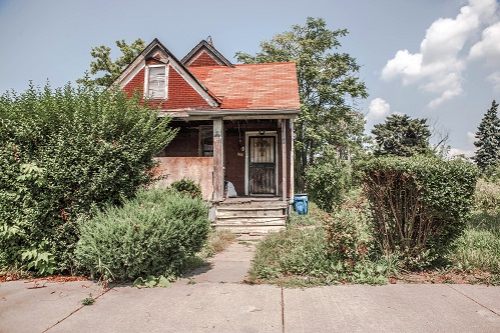Homeowners insurance cancellation vs. nonrenewal
Cancellation and nonrenewal mean the same thing: the insurance company will be ending your home insurance coverage. However, the reasons for each differ, as do the rules surrounding how and when the insurance company can cancel.
A cancellation is effective before the end of the policy term, while a nonrenewal is effective as of the end of the term.
“Nonrenewal gives coverage until the expiration date, many times there are some corrective actions that can reverse that decision. Cancellations usually have a shorter time constraint,” Pope says.
While state laws have some variation, the table below outlines common reasons for cancellation vs. nonrenewal.
| Cancellation reasons | Nonrenewal reasons |
|---|---|
| Non-payment of premiums | Too many avoidable claims |
| Material misrepresentation on your application | Risk level on your property has increased (eg. aging systems or roof) |
| Fraud | Risk level in your area has increased (eg. severe weather, crime) |
| Substantial change in risk | Failure to maintain or repair your home or property |
| Major drop in your credit score | |
| The insurance company is leaving your area | |
| Addition of a new risk to the home (eg. dog, pool) that the insurer won’t cover. |
As you can see, there are many more possible reasons for a nonrenewal than there are for a cancellation.
It’s also important to know that the amount of notice your insurance company has to give you differs depending on state law and the reason. You may have as little as 10 days' notice for non-payment, while a nonrenewal generally comes with 30 to 45 days' notice.
Reasons for homeowners insurance cancellation
There are only a few reasons your homeowners insurance company can cancel your policy in the middle of the term. While state laws vary as to what’s a legitimate reason, there are a few common ones.
Non-payment. Your insurance company can cancel your policy if you have not paid your premiums. You will have received notice that your premium is overdue before the cancellation notice. Even after the cancellation notice is received, you may be able to halt the cancellation by paying your bill.
Material misrepresentation. If the insurance company finds out that something on your insurance application was untrue and that it would have prevented the policy from being issued in the first place had the insurance company known, the policy can be canceled. For example, you said the house had a new roof when in fact the roof is 30 years old and in need of replacement.
Fraud. If the insurance company finds out you have committed fraud, such as inflating a claim or filing a false claim, it can cancel your policy.
Substantial increase in risk. If the risk of insuring your home has increased greatly since the policy was issued, the company may be able to cancel. In most cases, risk increases are gradual and will result in nonrenewal rather than cancellation.
Home insurance cancellation rights and restrictions are outlined in your policy; make sure you know what they are.
Reasons for nonrenewal of a homeowners insurance policy
As the table above shows, there are a lot more possible reasons for a nonrenewal than for a cancellation. Here are some reasons a home insurance company might nonrenew your policy:
Too many claims. If you have filed a lot of claims, your insurance company may decide you’re too much of a risk. Weather claims are usually not included in this count since they are out of your control.
Risk on the property has increased. Whether your roof or electrical system has gotten too old or some other risk on the property has changed so that a claim is far more likely, the insurance company can nonrenew your policy.
Risk in the area has increased. More crime, more severe weather events or wildfires and other changes in the overall risk of insuring homes in your area can all result in nonrenewal.
Failure to maintain or repair. Your insurance contract requires that you keep your home and property in good condition, take down any trees that are in danger of falling and replace or repair any damage or aging structures and systems.
Major drop in credit. Your credit is used in most states to determine your insurability and rates. While a drop in credit score alone can’t be a reason for nonrenewal in some states, a big drop can contribute to a nonrenewal.
The insurance company is leaving the area. When risk in a certain area makes insuring homes there too risky, some insurance companies will pull out of the area entirely, leaving homeowners to find new coverage.
“With many companies trying to reduce risks or they are exiting the industry altogether, nonrenewals are being received by many individuals through no fault of their own,” Pope says.
Addition of a new risk. If you got a new dog that’s on the insurance company’s no-go list, added a pool or trampoline or maybe started repairing old cars in the backyard, your insurance company may determine this new risk doesn’t meet the standards for coverage.
How to avoid non-renewal of your home insurance policy
Not all nonrenewals can be avoided. You can’t control the changing risks in your area, particularly due to weather, and you can’t prevent an insurance company from leaving the area. However, you can do a few things to keep your home insurable and prevent a nonrenewal.
- Update electrical, HVAC and plumbing that are outdated, replace your roof if it’s getting old and update anything else that might increase the risk of a claim on the property.
- Keep your home and property in good shape, repair any damage right away and take down any trees at risk of falling.
- Keep your credit in good standing.
- Don’t add new risks to your home without consulting your insurance company first.
- Complete upgrades that will reduce the risk of weather damage, like storm shutters or a hail-resistant roof.
Even after a nonrenewal notice, you may be able to keep your insurance by completing repairs or upgrades. Call your insurance company to find out if the nonrenewal is reversible.
How to get homeowners insurance after a nonrenewal
Getting a new insurance policy is harder after your coverage has been nonrenewed or canceled. Other insurance companies see it as a red flag. However, it is possible.
Since every insurance company measures risk differently, the risk that caused a nonrenewal with one company may not be an issue with another. Start shopping around as soon as you get the notice, and enlist the help of a local agent who can help you find companies that will accept your home.
In the meantime, follow the steps above to make your home more insurable; if there are repair or maintenance issues, odds are good the new insurance company will want them corrected as well.
Frequently asked questions
What happens if you have a lapse in homeowners insurance?
If you have a mortgage and your insurance lapses, your mortgage company may take out a policy and charge you for it. This type of insurance protects only the mortgage company and not you. A lapse may also result in higher insurance rates in the future.
Can an insurance company change your policy without notice?
No. If changes are being made to your policy you will receive a notice in the mail. This is usually included with your renewal notice.





